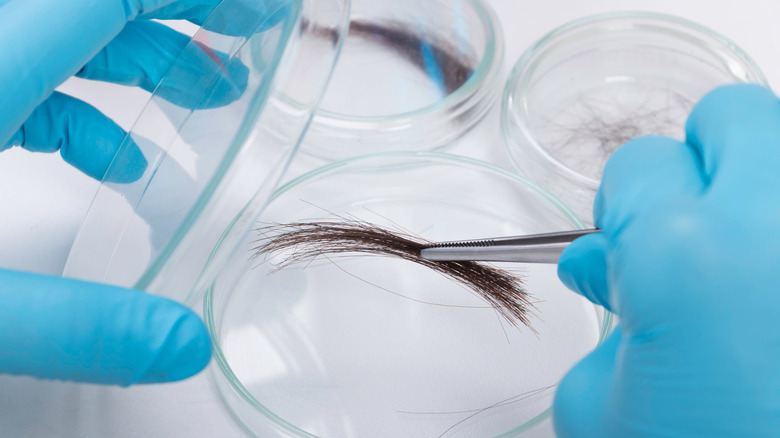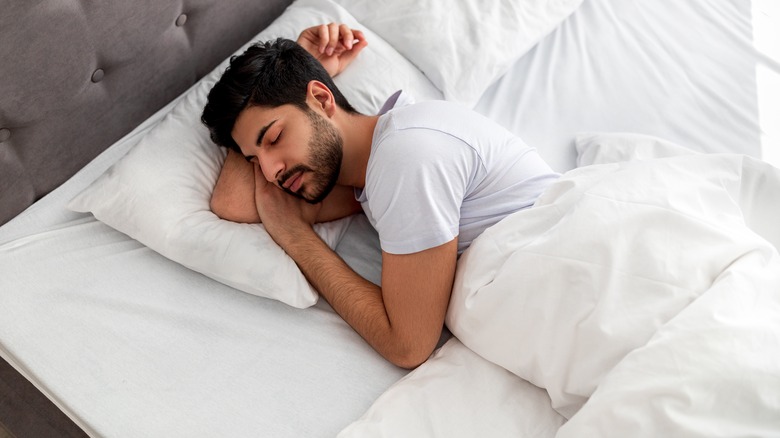What Your Hair Can Tell You About Your Sleeping Habits
It's fascinating to discover how different parts of the body are interconnected and influence each other in ways we might not even imagine. For instance, did you know that there is a relationship between your sleep habits and the growth of your hair? It might sound surprising, but scientific research has shown a connection between them.
Your hair is made up of protein strands that grow, shed, and regenerate through a natural process heavily influenced by your body's internal clock, also known as the circadian rhythm. This rhythm controls your sleep-wake cycle and many other bodily functions. A 2023 study published in the International Journal of Molecular Sciences has found a fascinating connection between the tiny hair follicles on your scalp and "clock genes," which help regulate our circadian rhythm. So, by looking at the condition and growth of someone's hair, you might get a sense of their sleep quality and how in sync their internal clock is. Hair can even be a clue to how well we sleep, since unhealthy hair can be a sign of poor sleep habits (via the Sleep Foundation).
The role of hair follicle genes in circadian rhythms
Did you know that hair follicle cells have "clock genes" that regulate different processes, including hair growth? A study published in 2010 by the Proceedings of the National Academy of Sciences of the United States of America (PNAS) discovered these genes, previously thought to be restricted to specific areas of the body. The study also showed that the circadian rhythm is crucial in coordinating the hair growth cycle. Meanwhile, the 2023 study in the International Journal of Molecular Sciences found that these "clock genes" in hair follicles are synchronized with the central circadian clock located in the brain.
Circadian clock genes were found to play an active role in regulating hair follicle cycling in a 2009 study published in PLOS Genetics. These genes control the growth and rest phases of hair follicles, ultimately impacting hair thickness and quality. Understanding the correlation between hair growth and the circadian rhythm has practical implications for evaluating your sleep quality through the strands of your hair.
Hair as a biomarker for sleep quality
According to the National Institute of Environmental Health Sciences (NIEHS), biomarkers (short for biological markers) capture what is happening in a cell or organism at a given moment and are important tools in assessing health. Hair is a promising biomarker for assessing sleep quality. Unlike traditional methods like sleep diaries or polysomnography, commonly called sleep studies (per Mayo Clinic), hair analysis can be a non-invasive way to provide a long-term record of someone's sleep patterns and stress levels because hair grows continuously, incorporating stress hormones like cortisol over time.
A study published in 2021 in the journal Life explored the relationship between hair cortisol concentration (HCC) and sleep quality. The researchers found that individuals with higher HCC levels were more likely to experience sleep disorders such as insomnia and obstructive sleep apnea. Additionally, HCC levels were found to be elevated in individuals with chronic stress. These findings suggest that HCC could be a valuable biomarker for sleep quality and related disorders.
Similarly, another study published in 2023 in the journal Acta Odontologica Scandinavica investigated the association between HCC, insomnia symptoms, and quality of life in preschool children using hair samples. The researchers found that children with severe early childhood caries (or cavities) had significantly higher levels of hair cortisol and more frequent insomnia symptoms.
Ultimately, hair analysis does hold promise as a tool to identify those at risk of sleep disorders. However, more research is needed to validate its effectiveness.



